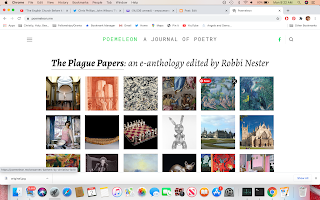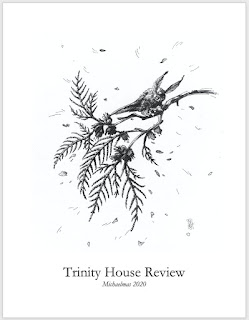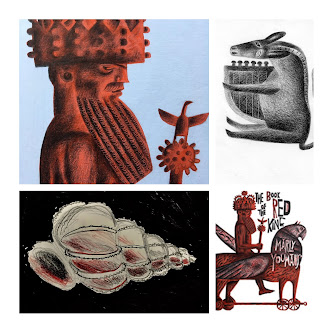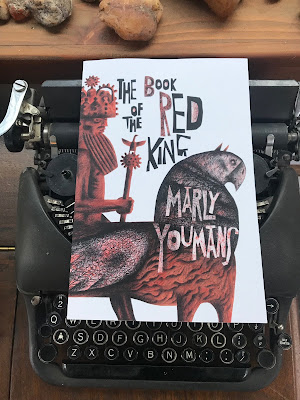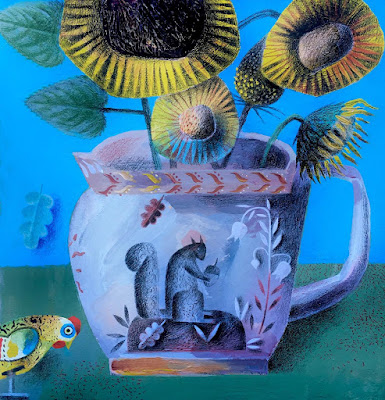 |
| Yellow Hen and Sunflowers. 2021. Oil, gouache and pencil on panel. All paintings from the current Clive Hicks-Jenkins series... |
CHARIS, CLIVE, SUSSEX, MORE!
Clive Hicks-Jenkins made chapter headings and the cover of Charis in the World of Wonders. Then the chapter headings became a cunning line of plates, cups, bowls, teapots, etc. from Sussex Lustreware! And now Clive has made a whole series of paintings featuring the Sussex Lustreware with Charis chapter headings.
Next up, I'm expecting wallpaper, fabric, everything in the world to be Charisean and Clivean! He is such a clever fellow...
 |
| Swan and Snail, 2021 Oil, gouache and pencil on panel. |
CHARIS IN THE WORLD OF WONDERS
HERE's an extended review of Charis in the World of Wonders by a retired English teacher, posting at the Science Fiction and Fantasy Chronicles Community Forum.
Clip: "People today are regrettably predisposed to assume they know all they need to know about the people of Marly Youmans's novel. They may enjoy the fresh air that will blow through their minds when they read this accomplished novel."
 |
| This painting has a Sussex "Loyal Friend" mug nestled into a toy theatre by Jim Pilston. |
WILLOWS WEPT
Had lots of lovely feedback on "Birds and Lilies in Rugosa Canes" (poem.) It's on p. 44, but you can flip through and read the whole magazine HERE.
 |
| I'll have to nab the title from Clive later-- don't see it with the facebook image. |
EKSTASIS
"The Curtal Candlelight at Tenebrae" (poem) can be found by flying HERE.
This one has garnered lots of gorgeous comments here and there, but I think my favorite might be this:
And if you missed "Starting with a Sentence by Aidan Hart" at First Things, pop over HERE to read. I love Aidan Hart's book on icons and much more, Beauty Spirit Matter. This poem also found a lot of readers and commenters--a thing which I appreciate so much.
 |
| Oil, gouache and pencil on panel. |









